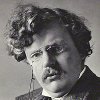“ for men are wont to form general ideas of things natural, no less than of things artificial, and such ideas they hold as types, believing that Nature (who they think does nothing without an object) has them in view, and has set them as types before herself. ”
Baruch Spinoza, Ethics (1677). copy citation
| Author | Baruch Spinoza |
|---|---|
| Source | Ethics |
| Topic | ideas view |
| Date | 1677 |
| Language | English |
| Reference | |
| Note | Translated by R. H. M. Elwes |
| Weblink | http://www.gutenberg.org/files/3800/3800-h/3800-h.htm |
Context
“But, after men began to form general ideas, to think out types of houses, buildings, towers, &c., and to prefer certain types to others, it came about, that each man called perfect that which he saw agree with the general idea he had formed of the thing in question, and called imperfect that which he saw agree less with his own preconceived type, even though it had evidently been completed in accordance with the idea of its artificer. This seems to be the only reason for calling natural phenomena, which, indeed, are not made with human hands, perfect or imperfect: for men are wont to form general ideas of things natural, no less than of things artificial, and such ideas they hold as types, believing that Nature (who they think does nothing without an object) has them in view, and has set them as types before herself. Therefore, when they behold something in Nature, which does not wholly conform to the preconceived type which they have formed of the thing in question, they say that Nature has fallen short or has blundered, and has left her work incomplete.”
source


